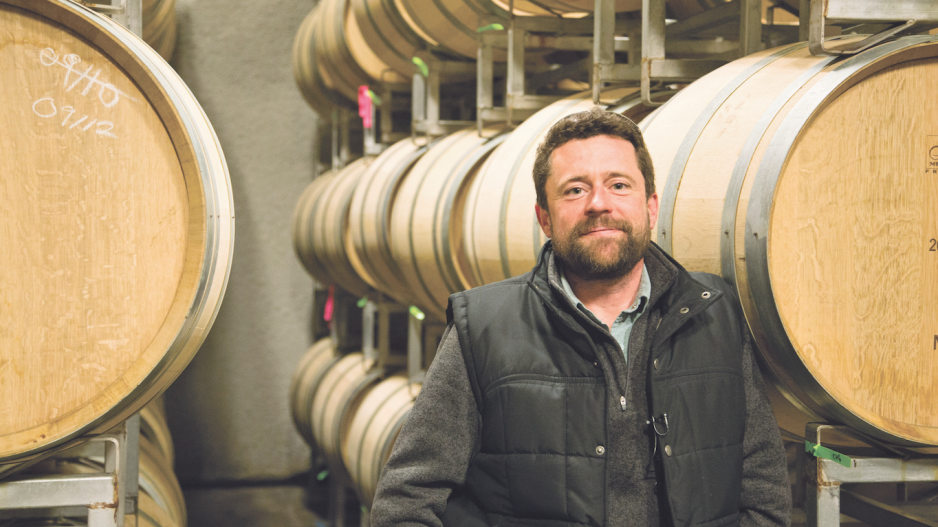(This is the third part of a three-part series on the British Columbia Wine Authority's plebiscite. Part 1: B.C. winery owners sour on having to join regulatory body ; Part 2: Move to sub-region names on labels could hike B.C. wine prices)
Perhaps the most controversial result of the British Columbia Wine Authority’s (BCWA) recent plebiscite is that it props up the British Columbia Vintners Quality Alliance (BCVQA) marketing program, which many winemakers see as useless as a guide for determining quality wine.
The result is also controversial because it pits the province’s large producers against the majority of winery owners.
The B.C. Wine Appellation Task Group, which spearheaded the plebiscite, had recommended that voters accept that BCWA members be eligible to put geographical locations on labels, regardless of whether they went through the process of becoming BCVQA certified.
After all, the BCWA audits all wine from its members to authenticate where the grapes were grown.
The only difference between wine from BCWA members who go through the BCVQA process and those who don’t is that those who opt to have BCVQA certification must pay extra fees and get approval from a BCWA tasting panel that rejects a mere 2% of wines tested, confirmed BCWA president Scott Hennenfent.
“Why do we need a tasting panel?” asked Blue Mountain Winery principal Matt Mavety, who sees no value in getting the BCVQA designation. “BCVQA should be abolished. It has been a successful marketing program but it has nothing to do with quality wine.”
Most winery owners – 80% – agree with Mavety that BCWA members should be allowed to put place names on all their wines.
The task group, however, required that in order for each recommendation to pass and be forwarded to government with a request for regulatory change, there must be a double majority – support from at least 65% of all winery owners and support from winery owners who produce at least 50% of all B.C. wine.
The 20% of winery owners who wanted only BCVQA wine to be eligible to carry geographic identifiers produce 55% of the province’s wine, so the recommendation failed.
Mavety’s winery, and other wineries that were operating before 2007, are grandfathered and are able to put terms such as Okanagan Valley and Estate Bottled on their labels. That grandfathered protection ends December 31, 2020.
After that, unless lobbying from Blue Mountain and other wineries is successful, Blue Mountain will have to either get BCVQA certification or forgo including geographic locations on the front of its wine bottles.
British Columbia Wine Institute CEO Miles Prodan, whose role is marketing B.C. wines, said that the BCVQA brand is well recognized and respected and therefore should be sustained.
Agriculture Minister Norm Letnick told BIV that he would act on all of the recommendations that received sufficient support in the plebiscite. He was just not sure whether the changes would require legislation or be a regulatory change that is done by cabinet. •
Cultivating change
Here are some results of the British Columbia Wine Authority’s recent plebiscite:
Recommendation:
As a condition of having a B.C. winery licence, producers making wine from 100% B.C.-grown grapes should be required to become a member of the BCWA and be subject to audits conducted and enforced per the regulation:
Approve: 125 wineries that produce 95% of B.C. wine
Reject: 55 wineries that produce 5% of B.C. wine
Recommendation:
Both BCVQA and British Columbia Wine (currently Wine of Distinction) should be allowed to use all geographical indications on their labels:
Approve: 144 wineries that produce 45% of B.C. wine
Reject: 36 wineries that produce 55% of B.C. wine
Recommendation:
After the establishment of a system of sub-geographical indications (that should take no longer than January 1, 2019), the BCWA should be given the authority to prohibit the use of any unregulated geographical indications associated with British Columbia on members’ wine labels:
Approve: 140 wineries that produce 94% of B.C. wine
Reject: 40 wineries that produce 6% of B.C. wine
To read a more detailed version and the full results, click here.




